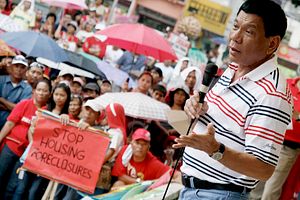While the police were counting the toll in Orlando left by Afghan-American Omar Mateen – who shot dead 49 people – the authorities in the southern Philippines were attempting to identify Canadian Robert Hall, who was kidnapped and this week killed by Abu Sayyaf militants.
Mateen and the Abu Sayyaf were Islamic State sympathizers. But, importantly, neither tragedy was coordinated from an IS central command post or through orders delivered by a religious hierarchy.
The Abu Sayyaf killing was in keeping with the group’s history of banditry and slaying individuals unless their financial demands are met.
Sadly, consecutive governments have for decades failed to deliver on promises to shut the Abu Sayyaf down. Outgoing Philippine President Benigno Aquino III put on a brave face.
“This latest heinous crime serves to strengthen our government’s resolve to put an end to this reign of terror and banditry,” he said following Hall’s death. Recently elected Canadian Prime Minister Justin Trudeau backed Aquino, saying Canada “will not give into their fear mongering tactics.”
Yes. But this is very cold comfort.
Hall’s pending death was flagged loudly by informed media following the decapitation of his compatriot John Ridsdel in April. Numerous warnings were issued that Hall would also be executed if the authorities failed to deliver on Abu Sayyaf ransom demands.
Predictably, Canada and the Philippines held course, refusing to give into the demands of terrorists.
It’s an almost ritual response and an attitude shared by other governments, at least in public. But it’s not always true, as hostages have been released previously following negotiations.
Ridsdel, Hall and his Filipino partner Marites Flor, and Norwegian Kjartan Sekkingstad were kidnapped from a marina near the city of Davao in September, which is also home to incoming Philippine President Rodrigo Duterte. Duterte sold himself in recent elections as the mayor who cleaned up the provincial town of drug dealers, murderers, and thieves.
He has promised to eradicate crime across the Philippines – which presumably includes the kidnappings in the south – within six months by doubling the salaries of police and the military and pardoning any excessive force by presidential decree.
He claims that policy made Davao peaceful. Human rights groups, meanwhile, say his approach was responsible for hundreds of unnecessary killings. And in any case, many doubt Duterte’s initial claims. A cabinet meeting in Davao earlier in the week highlighted just how bad the city still is.
It proved a nightmare for police and officials, who had to bring in an extra 600 personnel to ensure security. Extra training was given for another 122 personnel and intelligence gathering was stepped up substantially.
Importantly, it was not far from here that the three Westerners were taken. It was also near here that Ridsdel’s head was found in a gutter just two months ago. Hall’s decapitated head, meanwhile, was found in a plastic bag on a nearby island. In this part of the world, the Abu Sayyaf, armed with an allegiance to ISIS, operates with impunity. It once sank a ferry in Manila Bay, killing more than 100 people.
There is now speculation that Duterte will be granting himself special powers to combat the Abu Sayyaf. However, given his track record and despite painful boasts that he can do whatever he wants, such powers are probably misplaced and unlikely to change much.
That’s a great pity for the remaining hostages – Flor and Sekkingstad.
Luke Hunt can be followed on Twitter @lukeanthonyhunt

































